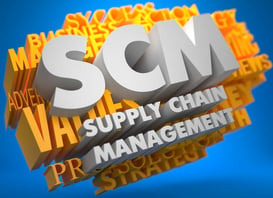
Gartner has recently released its annual Supply Chain Top 25 list and top performers include well-known companies like Bristol-Myers, General Mills, Johnson & Johnson, Nestle, and 3M. What do all of them have in common? All these companies were recognized as leaders in supply chain management. Gartner recognized them for best practices and emerging trends.
Inventory is Neutral
Warehouse inventory isn’t inherently good or bad. It’s a commodity, a thing. Until we place a value on it, inventory is neutral.
If you want to avoid stock-outs for your company, you increase the levels of two types of inventory in your warehouse: raw materials and finished goods. Keeping some safety stock on hand is a good strategy to counter demand peaks due to unanticipated rush orders or supply chain disruptions. It may seem like an overly simplistic method of ensuring you have stock; however, it can be an effective one.
Lean Manufacturing Eliminates Excesses
A lean inventory management system looks at variations in production and demand to determine the precise safety stock levels needed. Once they are set, you buy the amount you need.
Under a lean system, your company doesn’t eliminate inventory your business needs. This system suggests eliminating excess inventory from the warehouse. It is a way of doing business that reduces the need to carry excess inventory in your warehouse. One way you can reduce your reliance on “extra” inventory on hand is to develop relationships with local suppliers. Once these relationships are well established and you feel good about the local suppliers’ abilities to provide the inventory you need (especially on short notice), you can reduce the inventory you carry on hand.
Think About Running Smaller Lots
Lean manufacturing gives your company the ability to reduce work in progress. Traditional manufacturing depends on big production runs using dedicated machinery. This process includes long wait times at each stage of production which increases the time needed to complete a run. When demand for product ramps us, longer processing times create delays in their production.
Running smaller lot sizes reduces the inventory between production stages and wait times. Consider running basic inventories of product; you can paint the products to customize the colors when orders are placed. This strategy makes more sense than running large batches in colors that may or may not sell.
ERP Platforms Can Help Your Company Take Charge of Supply Chain Challenges
ERP platforms for manufacturing can be integrated with analytics and artificial intelligence software to track orders that are outside the range of what your customers generally place.
- The ERP will help you plan your own ordering based on fixed customer demands.
- It will help you to focus on the orders that need to be run and the specific components required.
- The ERP allows you to verify all data and make accurate decisions around buying and scheduling manufacturing runs.
SYSPRO ERP Allows You to Run with Lean Manufacturing
The role of the manufacturing supply chain has changed in recent years. It has shifted from a vehicle to keep costs down to one that is at the forefront in providing a first-class customer experience while maintaining a competitive advantage. SYSPRO’s ERP for Supply Chain Management allows manufacturers to optimize business operations, satisfy their customers’ needs, and complete orders on time. This ERP solution provides manufacturers with the control they require to manage all aspects of the manufacturing process.
A SYSPRO ERP from Positive Vision gives you a customized solution based on your company’s needs. It includes only the modules you need and nothing you don’t want. Choose from more than 50 different modules for a completely customized solution. As your business grows, you can add more modules or swap them out to make a better fit. Discover more about SYSPRO ERP solutions by contacting us today to speak to a product expert.
Discover more about SYSPRO ERP solutions by contacting us now to speak to a product expert.


 © 2019 PositiveVision • 219 E. Thorndale Ave. Roselle, IL 60172
© 2019 PositiveVision • 219 E. Thorndale Ave. Roselle, IL 60172